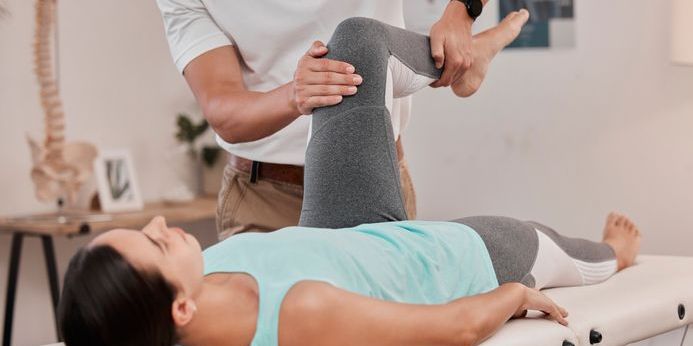What is a Physical Therapy Assistant?
A physical therapy assistant (PTA) works under the supervision of a physical therapist to help patients recover from injuries, surgeries, or medical conditions that affect their ability to move. PTAs assist patients with exercises, stretches, and mobility tasks designed to improve strength, flexibility, and overall physical function. They help patients perform exercises safely, monitor progress, and provide encouragement throughout the recovery process.
In addition to hands-on therapy, PTAs also help set up equipment like resistance bands, weights, and treadmills, and may guide patients in using these tools during their sessions. They also keep track of patients' progress by documenting their treatment and reporting any changes to the physical therapist.
What does a Physical Therapy Assistant do?

Duties and Responsibilities
Physical therapy assistants have a range of duties and responsibilities that contribute to the overall care and rehabilitation of patients under the supervision of a licensed physical therapist. Some of these responsibilities include:
- Assisting With Patient Exercises: PTAs help patients perform therapeutic exercises designed to improve strength, flexibility, balance, and mobility. They guide patients through stretches, movements, and activities tailored to their needs.
- Monitoring Patient Progress: PTAs observe and track how patients are progressing with their therapy. They report any changes in the patient's condition or response to treatment to the physical therapist, ensuring that the treatment plan is adjusted as necessary.
- Setting Up Equipment: PTAs prepare and set up the therapy area by arranging equipment like weights, resistance bands, treadmills, and other tools used during therapy sessions. They ensure that all equipment is safe and properly functioning.
- Educating and Motivating Patients: PTAs explain exercises to patients and ensure they understand how to perform them correctly. They also encourage patients and provide support throughout their recovery, helping them stay motivated.
- Documenting Patient Information: PTAs keep accurate records of the patients' progress, including how they respond to treatments and any changes in their condition. They also maintain records of each session and any updates to the treatment plan.
- Ensuring Patient Safety: PTAs make sure that patients perform exercises in a safe manner, helping them avoid injury while working toward recovery. They are trained to identify potential risks and intervene if necessary.
Types of Physical Therapy Assistants
There are several types of physical therapy assistants, each focusing on different areas of patient care. Some common types include:
- Sports Rehabilitation Assistant: PTAs in this specialty work with athletes or active individuals who are recovering from sports-related injuries. They help improve strength, flexibility, and performance through targeted exercises and therapy techniques.
- Geriatric Physical Therapy Assistant: These PTAs specialize in working with elderly patients, often in nursing homes or long-term care facilities. They assist with exercises and mobility tasks to help seniors maintain independence and recover from conditions related to aging, such as arthritis, strokes, or fractures.
- Pediatric Physical Therapy Assistant: PTAs in pediatric care work with children, particularly those with developmental or physical disabilities. They help children improve motor skills, coordination, and strength through customized exercises and activities.
- Home Healthcare Assistant: Some PTAs work in home healthcare, visiting patients in their homes to provide therapy and assist with rehabilitation. They help patients who may have difficulty traveling to a clinic or hospital, ensuring they continue their recovery in a comfortable, familiar environment.
What is the workplace of a Physical Therapy Assistant like?
The workplace of a physical therapy assistant can vary depending on the setting in which they work. Many PTAs work in outpatient clinics, which are healthcare facilities where patients visit for therapy sessions. These clinics are usually busy and have multiple therapy rooms with equipment such as treadmills, weights, and resistance bands. PTAs assist patients by guiding them through exercises and helping them improve mobility in a supportive and encouraging environment.
Some PTAs work in hospitals, often in the rehabilitation or recovery departments. Hospitals may have a more clinical setting, where patients are recovering from surgeries, injuries, or severe conditions. PTAs in hospitals work closely with physical therapists to help patients regain strength and mobility after surgeries or accidents. The work environment can be fast-paced, with PTAs frequently moving between different patient rooms and assisting with exercises in the therapy areas.
Other PTAs work in nursing homes or long-term care facilities, where they assist elderly patients with mobility issues and help them maintain independence. These settings tend to have a more personal and caring environment, with a focus on improving the quality of life for seniors. PTAs may work one-on-one with patients to help them perform exercises that improve their flexibility, strength, and balance, often with the goal of helping them stay as active and independent as possible.
Physical Therapy Assistants are also known as:
Physical Therapist Assistant
PTA